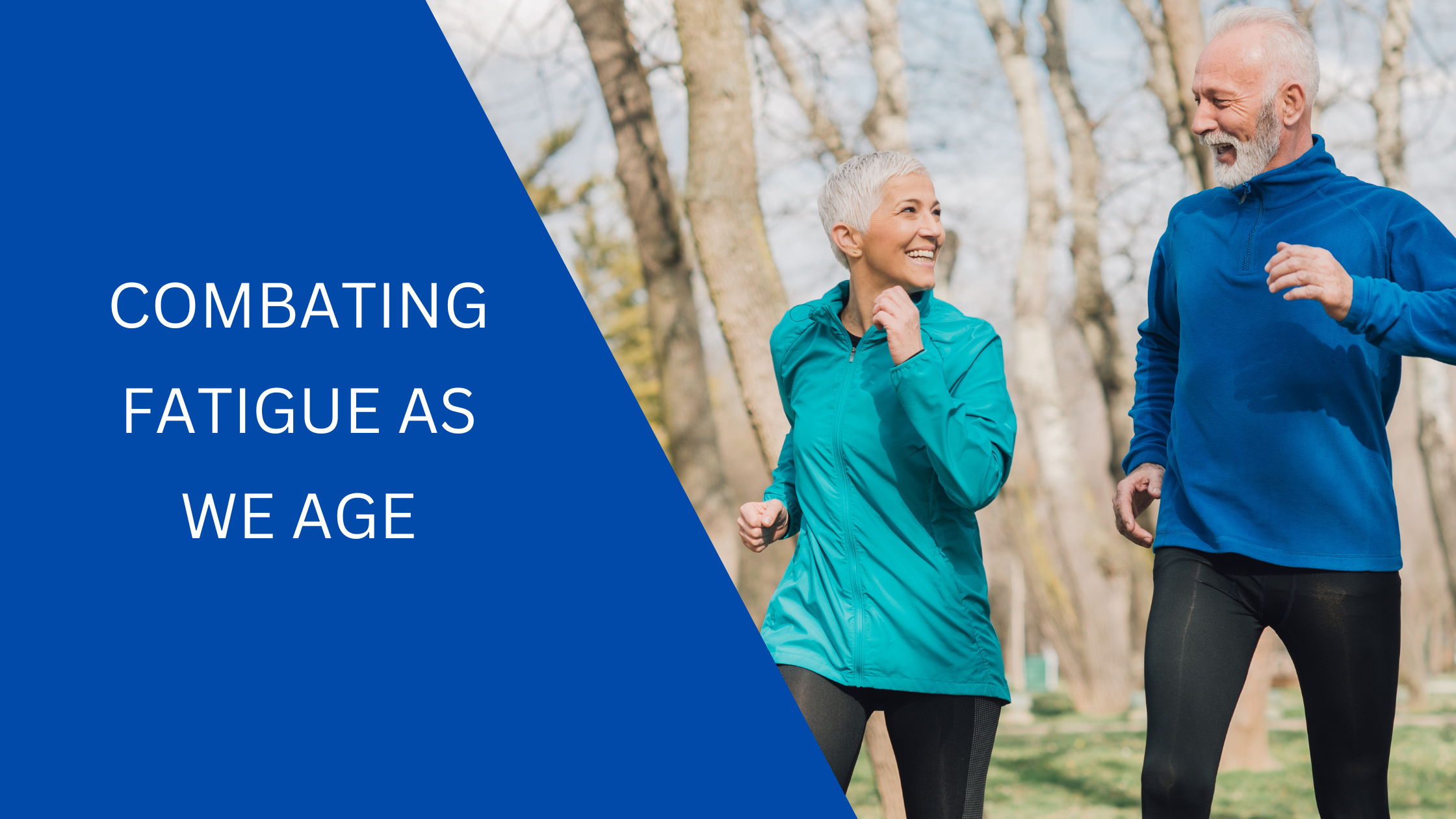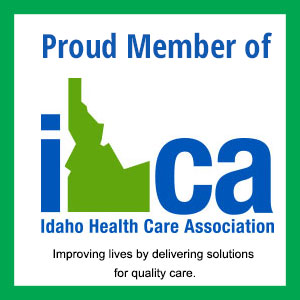
As we grow older, it’s common to find ourselves battling with dwindling energy levels and struggling to keep up with the pace of life. Whether it’s feeling tired by midday or finding it harder to muster the enthusiasm for activities we once enjoyed, fatigue can impact our quality of life and become frustrating. However, aging doesn’t have to mean an inevitable decline in energy. With the right strategies, we can reclaim vitality, zest, and the ability to embrace each day with renewed vigor.
So, let’s delve into the science behind fatigue, explore its various causes, and most importantly, equip ourselves with practical tips and lifestyle changes to combat fatigue effectively. If you’re ready to rediscover the boundless energy that can make every moment feel vibrant and alive, join us on this journey to unlock the secrets of combating fatigue as we age.
What Is the Science and Causes Behind Fatigue?
Understanding the science behind fatigue can help us better manage and combat it as we age. Fatigue is a complex phenomenon that can be influenced by various factors, both physical and psychological. Our bodies rely on a molecule called adenosine triphosphate (ATP) for energy. ATP is produced primarily in the mitochondria, the powerhouse of our cells. As we age, mitochondrial function can decline, leading to less efficient energy production. This can contribute to feelings of fatigue. There are many contributing factors to fatigue and oftentimes it is a combination of things.
Hormonal changes
Some causes of fatigue include hormone changes. Hormones play a significant role in regulating energy levels. For example, cortisol, often referred to as the stress hormone, can negatively affect our energy. Chronic stress, which can become more common as we age, can lead to dysregulation of cortisol levels, contributing to fatigue.
Decreased muscle mass
Another fatigue contributor is decreased muscle mass and strength. Age-related loss of muscle mass, known as sarcopenia, can contribute to fatigue. Muscles are essential for physical activity, and when we have less muscle mass, tasks that were once easy can become more tiring. A decline in muscle mass typically starts around the age of 30 and accelerates after the age of 50. By the time a person reaches their 70s, they may have lost anywhere from 20-40% of their muscle mass compared to when they were younger.
Nutritional deficiencies
Nutritional deficiencies are a main cause of fatigue. Many older adults experience a decrease in appetite as they age. This can be due to factors such as changes in taste and smell, medications, dental problems, and reduced physical activity. Inadequate intake of essential nutrients can lead to fatigue as well. For example, low levels of vitamin D, vitamin B12, or iron can contribute to feelings of tiredness and low energy.
Psychological factors
Fatigue can also have psychological roots. As people age, they may face a range of life changes, losses, and challenges that can impact their mental and emotional well-being. Depression, anxiety, and stress can all contribute to feelings of exhaustion. These conditions can become more prevalent as we age, impacting our energy levels.
Tips to Combat Fatigue
From changes in diet and exercise to mindfulness techniques and sleep hygiene, there are actionable steps that can be taken to help a person feel more energized and revitalized.
Balance hormone levels
While it’s not always possible to completely “balance” hormones, there are strategies that older individuals can use to help manage hormone changes and promote overall well-being. These include:
- Consult with a Healthcare Provider. If a hormone imbalance is suspected, an individual should consult with a healthcare provider. Blood tests can assess hormone levels, and a doctor can provide guidance on treatment options.
- Healthy Diet. Eating a balanced diet rich in fruits, vegetables, whole grains, lean protein, and healthy fats support overall hormonal health. Certain nutrients, such as omega-3 fatty acids and antioxidants, are particularly beneficial. Avoiding processed foods and excessive sugar can also help.
- Regular Exercise. Physical activity is essential for hormone regulation. Both aerobic exercise and strength training can help maintain hormonal balance, improve mood, and reduce the risk of chronic diseases associated with hormonal changes.
- Manage Stress. Chronic stress can disrupt hormone balance. Practices such as meditation, yoga, deep breathing exercises, and spending time in nature can help manage stress levels.
- Adequate Sleep. Poor sleep can disrupt hormone production and regulation. Individuals should aim for 7-9 hours of quality sleep per night. Establishing a regular sleep schedule and creating a relaxing bedtime routine can improve sleep quality.
- Hormone Replacement Therapy (HRT). In some cases, especially for women experiencing menopause, hormone replacement therapy may be recommended by a healthcare provider. This can help alleviate symptoms of hormonal imbalance such as hot flashes, mood swings, and sleep disturbances.
Increase muscle mass
Increasing muscle mass among older adults can be achieved through a combination of targeted exercise, proper nutrition, and healthy lifestyle habits. Engaging in regular strength training exercises is crucial for building muscle mass. Focus on exercises that target major muscle groups, such as squats, lunges, chest presses, rows, and shoulder presses. Using resistance bands, free weights, or weight machines can help build strength too. Gradually increase the intensity of your strength training over time to avoid injury. This means increasing the weight, repetitions, or sets as your strength improves. Progressive overload is key to stimulating muscle growth. It is important to remember that muscles need time to repair and grow. Ensure you have adequate rest days between workouts to allow for recovery. Aim for 48 hours of rest before working the same muscle group again.
Proper nutrition is essential, as protein is vital for muscle repair and growth. Aim to include lean protein sources in your diet such as chicken, fish, lean meats, eggs, dairy, legumes, and tofu. Some older adults may benefit from slightly higher protein intake than younger adults to support muscle maintenance and growth. Include sources of healthy fats such as avocados, nuts, seeds, and olive oil in your diet. Healthy fats support overall health and can aid in muscle repair. Carbohydrates provide energy for workouts and support recovery. Opt for whole grains, fruits, vegetables, and legumes for sustained energy. And don’t forget to hydrate! Proper hydration is essential for muscle function and recovery. Drink water throughout the day, especially before and after workouts.
Overcome nutritional deficiencies
Nutritional deficiencies among older adults can be addressed through various strategies. First, a balanced diet must be established as it is the foundation for overcoming nutritional deficiencies. Aging adults should focus on consuming a variety of nutrient-dense foods, including fruits and vegetables, whole grains, lean protein sources, dairy or alternatives, and healthy fats. In some cases, supplements may be necessary to address specific deficiencies. Routine visits to a healthcare provider are crucial for identifying and addressing nutritional deficiencies. Blood tests can detect deficiencies such as iron, vitamin D, B vitamins, and more.
Adequate fiber intake is important for digestive health and will aid in nutrient absorption. Planning meals in advance and preparing home-cooked meals allows for better control over nutrient intake. Cooking with fresh ingredients and minimizing processed foods can improve nutritional quality. For personalized advice on overcoming nutritional deficiencies, a registered dietitian can be consulted. A dietitian can create a tailored nutrition plan based on individual needs, preferences, and health conditions.
Psychological wellness
Promoting psychological wellness among aging adults is crucial to overall well-being and quality of life. As people age, they may face various challenges, including changes in health, loss of loved ones, retirement, and social isolation. Some ways to enhance psychological wellness are to maintain social connections, as this can have a significant impact on mental health. Participation in social activities, clubs, volunteering, or simply staying in touch with friends and family can provide emotional support, reduce feelings of loneliness, and boost mood. Practices such as meditation, deep breathing exercises, yoga, expressing gratitude, participating in support groups, engaging in activities that stimulate the mind, and seeking mental health support can help reduce stress, improve mood, and promote a sense of calmness. These techniques can also improve sleep quality and overall well-being.
Unlock Your Hidden Energy
While fatigue might be a common experience as we age due to various factors, it doesn’t have to define our lives. There are numerous strategies and lifestyle changes we can implement to combat fatigue and reclaim our vitality. So start today and unlock the hidden energy that is waiting to be unleashed.
Let Us Help You Today!
We welcome the opportunity to speak with you about careers at The Cottages and the care that our residents receive at our Idaho locations. We are experts in assisted living, memory care, respite, adult day care, and have been serving seniors for over 20 years. Our small home-like senior living homes and specially-trained team members offer an atmosphere that promotes the well-being of your loved one.
If you have any questions, would like to tour one of the Idaho assisted living or memory care homes, or speak with one of our licensed administrators, please fill out the form below. Please mention which location(s) you’re interested in.



